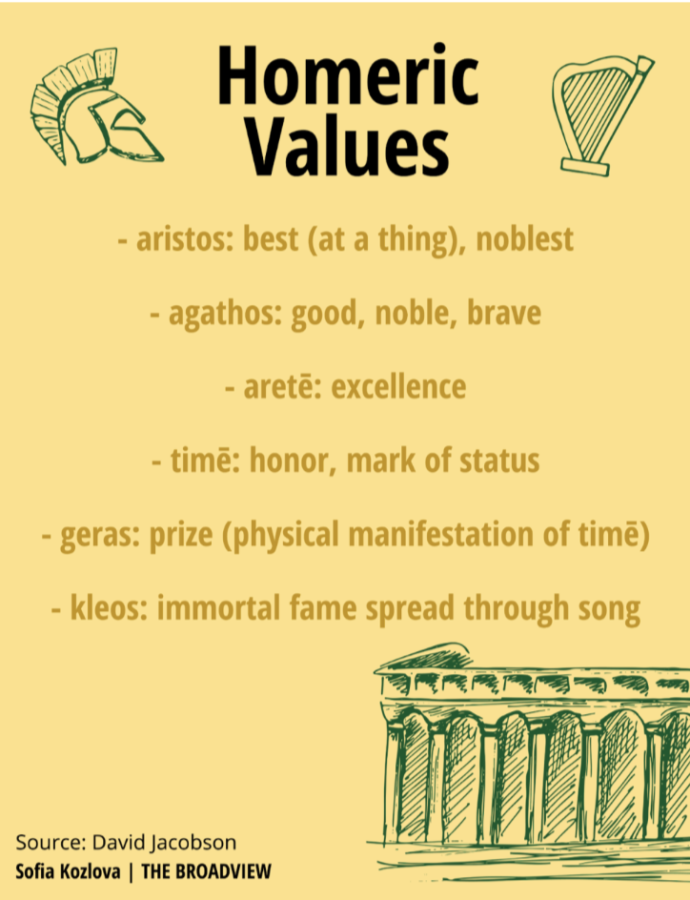Ethics students learn about Homeric values
Starting off the year with a historical foundation
The six main Homeric Values all have to do with being the best or wanting to become better. Students in Campos’ ethics class have been learning about these values for more than 6 years.
September 5, 2022
Sophomores in Michael Campos’ ethics class were lectured on ancient ethics Friday. Topics such as Homeric values — which are values presented in The Iliad and Odyssey — were introduced.
For the 6th year in a row, Campos invited Latin teacher David Jacobson to teach his sophomore ethics students about Homeric values. The discussion centered around The Iliad and Homeric values in relation to The Iliad.
“More than just a class on what is ‘right’ and ‘wrong,’ Ethics invites us to explore where our value systems come from,” Campos said. “Including the diverse cultures, ideas, and languages that gave birth to our worldviews.”
Jacobson focused on specific terms used in the poem such as ‘aristos’, meaning to be the best at a thing, ‘aretē’, meaning excellence, and ‘kleos’, meaning immortal fame. ‘Aristos’ is the root of words like aristocrat and in Ancient Greece, it was the class of people most affected by honor — an interesting connection to modern day language, according to sophomore Ella Andrzejek.
“I thought it was interesting how people began to associate ‘geras’ (prizes) and ‘kleos’ (immortal fame) with honor,” Andrzejek said. “Rather than honoring people for accomplishments that took place during their lifetimes.”
In the discussion, Jacobson spent part of the class discussing the myth involved in The Iliad and gave a summary of the epic. The storytelling engaged students in the ethical material even more, according to sophomore Chiara Zeppa.
“It was really cool to have Dr. Jacobson come and teach us about ancient ethics,” said Zeppa. “The lecture gave us a good background and was really interesting.”
A large theme in the lecture was the word ‘aretē’, which was later used in Plato’s philosophies, and means virtue. Aretē is meant to be used for the benefit of others or else it is taken away, but in the Iliad the word was used to mean excellence but it changed based on historical contexts and the values of Greece, according to Campos.
“By tracing the evolution of the word aretē, the meaning progresses from excellence to virtue,” Campos said. “Dr. Jacobson provides context to the Platonic philosophy that grounds Christian ethics today.”










